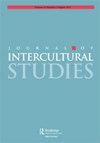驾驭种族景观:马来青年在新加坡的教育和工作经历
IF 1
Q3 SOCIOLOGY
引用次数: 1
摘要
学者们注意到,需要对亚洲种族和种族主义的独特结构进行实证和理论研究。本文探讨了马来青年在新加坡接受教育和就业期间所遇到的种族化景观。我们强调了构成该国种族景观的三个独特的组成部分,即(i)国家将种族作为命名手段;(ii)种族方面的经济和社会不平等与精英政治的言论同时存在,以及(iii)对种族的讨论可能被视为冒犯,违反了当地法律。基于与马来青年就他们的教育和就业经历和记忆进行的焦点小组,我们强调了他们对种族分层的看法。我们探讨了新加坡的种族景观,在那里,马来青年被排除在网络之外,被和谐的多元文化话语所沉默,被排除在占主导地位的基于汉语的企业文化之外。我们的研究结果表明,挑战多元文化城市中的种族不平等需要废除系统性的分层制度。我们的分析有助于理解亚洲和亚洲人之间种族和种族主义的独特结构。本文章由计算机程序翻译,如有差异,请以英文原文为准。
Navigating the Racial Landscape: Malay Youth Experiences of Education and Work in Singapore
ABSTRACT Scholars have noted the need for both empirical and theoretical research on the unique configurations of race and racism within Asia. This paper explores the racialized landscape encountered by Malay youth during their education and employment in the city-state of Singapore. We highlight the three unique building blocks which comprise the country’s racial landscape, namely (i) race is used as a naming device by the state; (ii) economic and social inequality along the lines of race exist alongside discourses of meritocracy and (iii) discussions of race which can be perceived as offensive are violations of local laws. Based on focus groups conducted with Malay youth on their experiences and memories of their education and employment, we highlight their perspectives on racial stratification. We explore Singapore’s racial landscape within which Malay youth are excluded from networks, silenced through discourses of harmonious multiculturalism, and excluded from Chinese-language-based corporate cultures which are predominant. Our findings suggest that challenging racial inequality in multicultural cities requires the dismantling of systemic systems of stratification. Our analysis contributes to understanding the unique configurations of race and racism in Asia and amongst Asians.
求助全文
通过发布文献求助,成功后即可免费获取论文全文。
去求助
来源期刊

Journal of Intercultural Studies
SOCIOLOGY-
CiteScore
1.80
自引率
10.00%
发文量
67
期刊介绍:
Journal of Intercultural Studies showcases innovative scholarship about emerging cultural formations, intercultural negotiations and contemporary challenges to cultures and identities. It welcomes theoretically informed articles from diverse disciplines that contribute to the following discussions: -Reconceptualising notions of nationhood, citizenship and belonging; -Questioning theories of diaspora, transnationalism, hybridity and ‘border crossing’, and their contextualised applications; -Exploring the contemporary sociocultural formations of whiteness, ethnicity, racialization, postcolonialism and indigeneity -Examining how past and contemporary key scholars can inform current thinking on intercultural knowledge, multiculturalism, race and cultural identity. Journal of Intercultural Studies is an international, interdisciplinary journal that particularly encourages contributions from scholars in cultural studies, sociology, migration studies, literary studies, gender studies, anthropology, cultural geography, urban studies, race and ethnic studies.
 求助内容:
求助内容: 应助结果提醒方式:
应助结果提醒方式:


